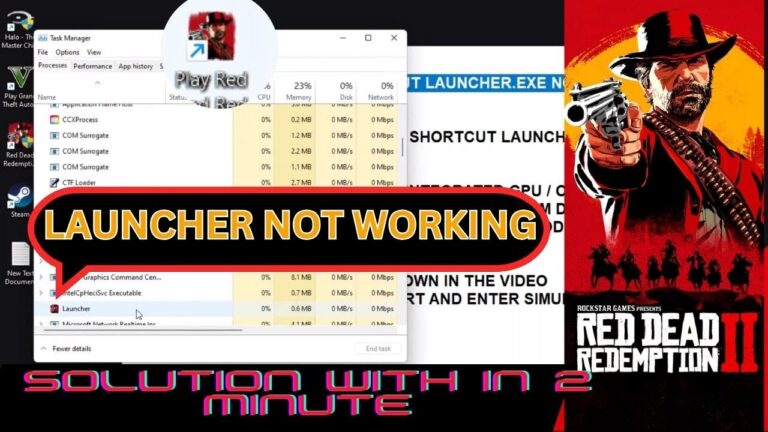
One Modification, Infinite Effect: Enhancing the Remastered Experience of Fallout 3! 2025

A mainstay of immersive role-playing games for a long time, Fallout 3 is beloved by many for its desolate yet engrossing open world. The idea of returning to the Capital Wasteland with contemporary improvements is exciting, especially in light of the circulating rumours and fan hopes for a Fallout 3 remaster. But a remaster by itself—better graphics, more fluid gameplay—might not be enough to satisfy modern players or honour the game’s history. What if the experience could be completely changed by a single well-chosen change, increasing its replayability and depth to unimaginable levels? For both new players and experienced Wasteland explorers, this blog will examine how a single, significant change—a dynamic faction reputation system—could turn a Fallout 3 remaster into a masterpiece.
Every Tag Counts
The Capital Wasteland: A World Ripe for Evolution
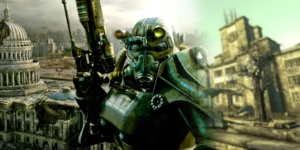
Players were introduced to a post-apocalyptic Washington, D.C., in Fallout 3 (2008), which was full of memorable characters, moral quandaries, and an eerie atmosphere. The game’s world seems vibrant as soon as you exit Vault 101, but its systems are dated. The dynamics of the original factions were straightforward: organisations such as the Brotherhood of Steel or Raiders frequently interacted in a binary fashion, with little room for nuance, as friends or enemies. Fallout 3’s factions remained static, restricting player agency and long-term effects, while Fallout: New Vegas later improved faction systems with reputation and disguise mechanics.
A remaster presents an opportunity to update both the main gameplay and the graphics. The Metro tunnels can be made more eerie with improved textures and ray-tracing, and quality-of-life adjustments like improved gunplay or sprinting can bring the game up to date. However, we require a change that increases player choice and immersion if we want to genuinely improve the experience. A single modification can have an endless number of repercussions throughout the game thanks to the dynamic faction reputation system.
The Modification: Dynamic Faction Reputation System

Consider a Fallout 3 in which every action you take—such as assisting a settlement, raiding a caravan, or even avoiding an enemy—influences how different factions view you. Your connections with organisations such as the Brotherhood of Steel, Enclave, Raiders, Talon Company, and smaller communities like Megaton or Rivet City would be monitored by a dynamic faction reputation system. In contrast to the strict alignments of the original, this system would include:
- Reputation Tiers: Factions respond based on a sliding scale (e.g., Hated, Neutral, Respected, Idolized), affecting dialogue, quests, and interactions.
- Consequence-Driven Choices: Actions have visible and lasting impacts. For example, aiding Tenpenny Tower’s residents might anger the Outcasts, who see it as supporting elitism.
- Disguise Mechanics: Wear a faction’s armor to infiltrate or deceive, but risk discovery if your reputation is too poor.
- Faction Alliances and Conflicts: Your reputation with one group could alter its relationships with others, creating dynamic alliances or rivalries.
- Regional Influence: Smaller settlements like Arefu or Big Town react to your reputation, offering unique quests or trade benefits if you’re trusted.
This system, inspired by Fallout: New Vegas but tailored to Fallout 3’s world, would make the Capital Wasteland feel more reactive and alive. Let’s explore how it could transform key aspects of the game.
Transforming the Player Experience
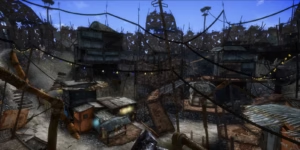
1. Deeper Role-Playing and Moral Complexity
Fallout 3 thrives on moral choices, like whether to detonate Megaton’s bomb or disarm it. A faction reputation system would add layers to these decisions. For instance:
- Megaton’s Fate: Destroying Megaton might earn favor with Tenpenny Tower’s elite but make you a pariah to the Brotherhood and nearby settlements. Conversely, saving Megaton could boost your reputation with Rivet City, unlocking unique traders or companions.
- The Pitt DLC: Choosing to side with Ashur or the slaves would have broader consequences. Supporting Ashur might align you with Raider factions, while freeing the slaves could gain you allies in Underworld’s ghouls.
Because factions respond to both major quest outcomes and minor actions, such as assisting a Wasteland scavenger or robbing a caravan, every decision would feel more significant. Whether as a merciless mercenary, a selfless nomad, or a realistic survivor, this encourages players to role-play frequently.
2. Enhanced Replayability
One of Fallout 3’s strengths is its open-ended exploration, but its faction interactions lack variability. A dynamic reputation system would make each playthrough unique:
- Faction-Specific Quests: High reputation with the Brotherhood might unlock missions to reclaim tech from Talon Company, while a good standing with Raiders could lead to raids on settlements.
- Alternate Quest Paths: Infiltrate the Enclave wearing their armor to sabotage from within, or gain their trust through quests to access unique gear.
- Dynamic World Events: High reputation with Rivet City could trigger a trade caravan event, while being hated by Talon Company might lead to ambushes in the Wasteland.
With factions responding to your reputation, no two playthroughs would feel the same. You could be a hero to one group and a villain to another, reshaping the world with every decision.
3. Immersive World-Building
The Capital Wasteland is rich with lore, but its factions often feel disconnected. A reputation system would tie them together:
- Inter-Faction Dynamics: Helping the Brotherhood secure Project Purity might strain relations with the Enclave, leading to skirmishes you witness in the open world.
- Settlement Reactions: Small communities like Canterbury Commons could offer unique dialogue or quests based on your reputation with nearby factions, making them feel more integrated.
- Companion Interactions: Companions like Fawkes or Charon could react to your faction alignments, refusing to follow if you align with groups they oppose.
This interconnectedness would make the Wasteland feel like a living ecosystem, where your actions ripple across factions and regions.
4. Tactical Gameplay Opportunities
A reputation system would add strategic depth to combat and exploration:
- Disguise and Deception: Sneak into a Raider camp wearing their gear, but risk exposure if your reputation is low. This adds tension and rewards stealth builds.
- Faction-Based Perks: High reputation with a faction could unlock perks, like Brotherhood training for power armor or Enclave tech for energy weapons.
- Dynamic Encounters: Your reputation could influence random encounters, such as being aided by Outcasts if you’re respected or hunted by Talon Company if you’re despised.
These mechanics would make every journey through the Wasteland unpredictable and engaging, blending role-playing with tactical decision-making.
Implementation Challenges and Solutions
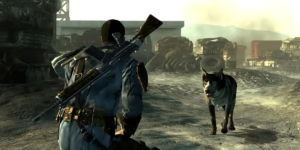
While a dynamic faction reputation system sounds transformative, integrating it into a Fallout 3 remaster poses challenges:
- Balancing Complexity: Too many faction interactions could overwhelm players. Solution: Limit tracked factions to major groups (Brotherhood, Enclave, Raiders, etc.) and key settlements, with clear UI feedback (e.g., a reputation log in the Pip-Boy).
- Retroactive Integration: Fallout 3’s quests weren’t designed for dynamic reputations. Solution: Add reputation triggers to existing quests (e.g., helping Moira Brown boosts Megaton reputation) and introduce new side quests tied to factions.
- Performance Impact: Tracking reputations across a large open world could strain performance. Solution: Optimize by updating reputations only during key events or zone transitions, leveraging modern hardware.
With careful design, these hurdles are surmountable, ensuring the system enhances rather than complicates the experience.
Why This One Modification?
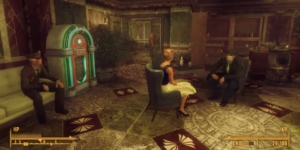
Why prioritise a faction reputation system over other possible modifications, such as a redesign of the crafting system or more companions? because it modifies Fallout 3’s story, exploration, combat, and replayability without changing the game’s essential features. It maintains the desolate, choice-driven ambiance that fans adore while enhancing the Wasteland’s current factions to make them more responsive and dynamic. In contrast to minor mechanics or visual enhancements, this change opens up countless possibilities because every player’s actions create a different world.
A Vision for the Future
A dynamic faction reputation system in a Fallout 3 remaster might establish a new benchmark for remasters and demonstrate how a single, well-considered change can revitalise a beloved game. Imagine exploring the Capital Wasteland with the knowledge that every action you take affects how its residents perceive you—as a legend, a friend, or an enemy. Fallout 3’s legacy would be respected by this system, which would also make it feel modern for 2025 and beyond.


